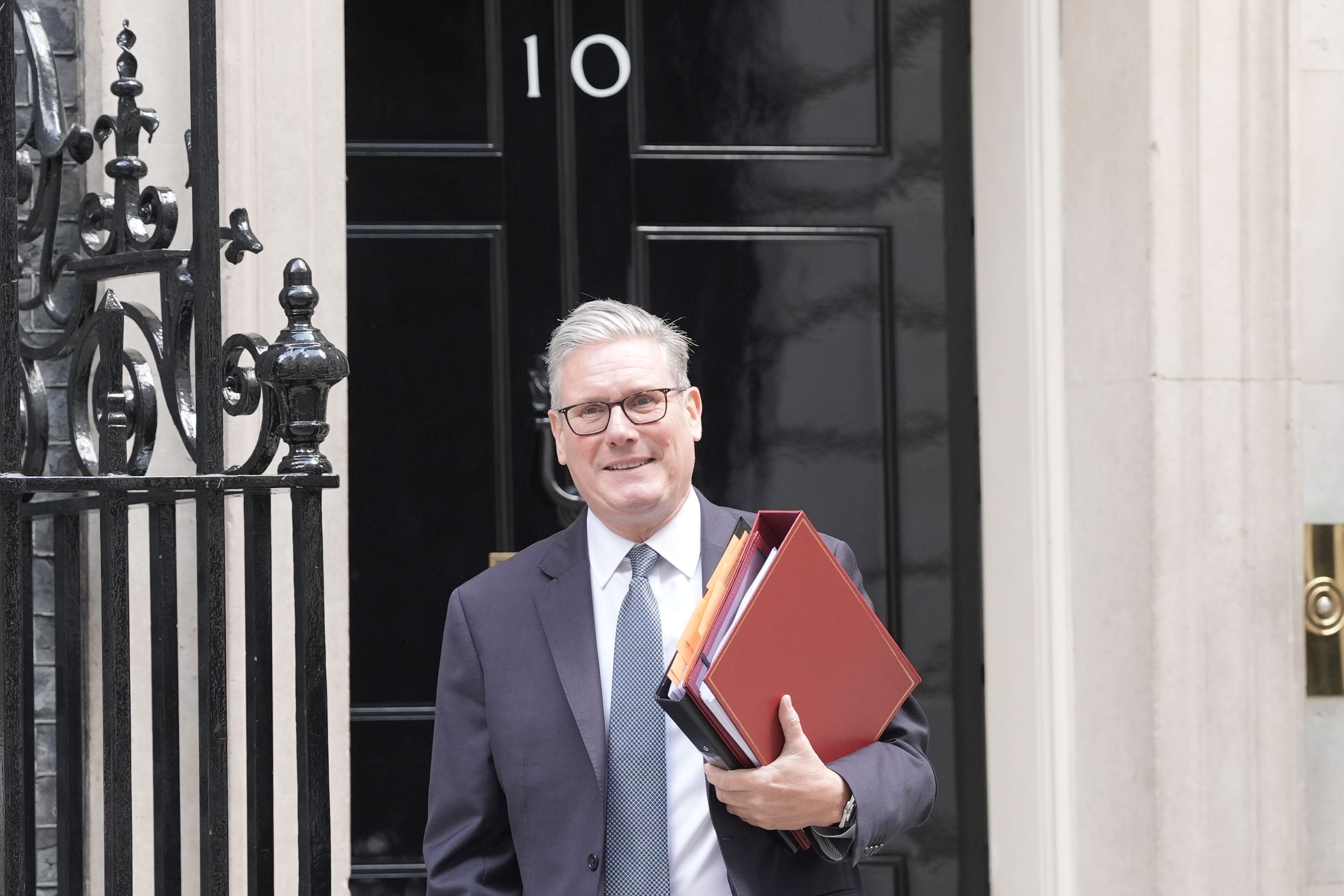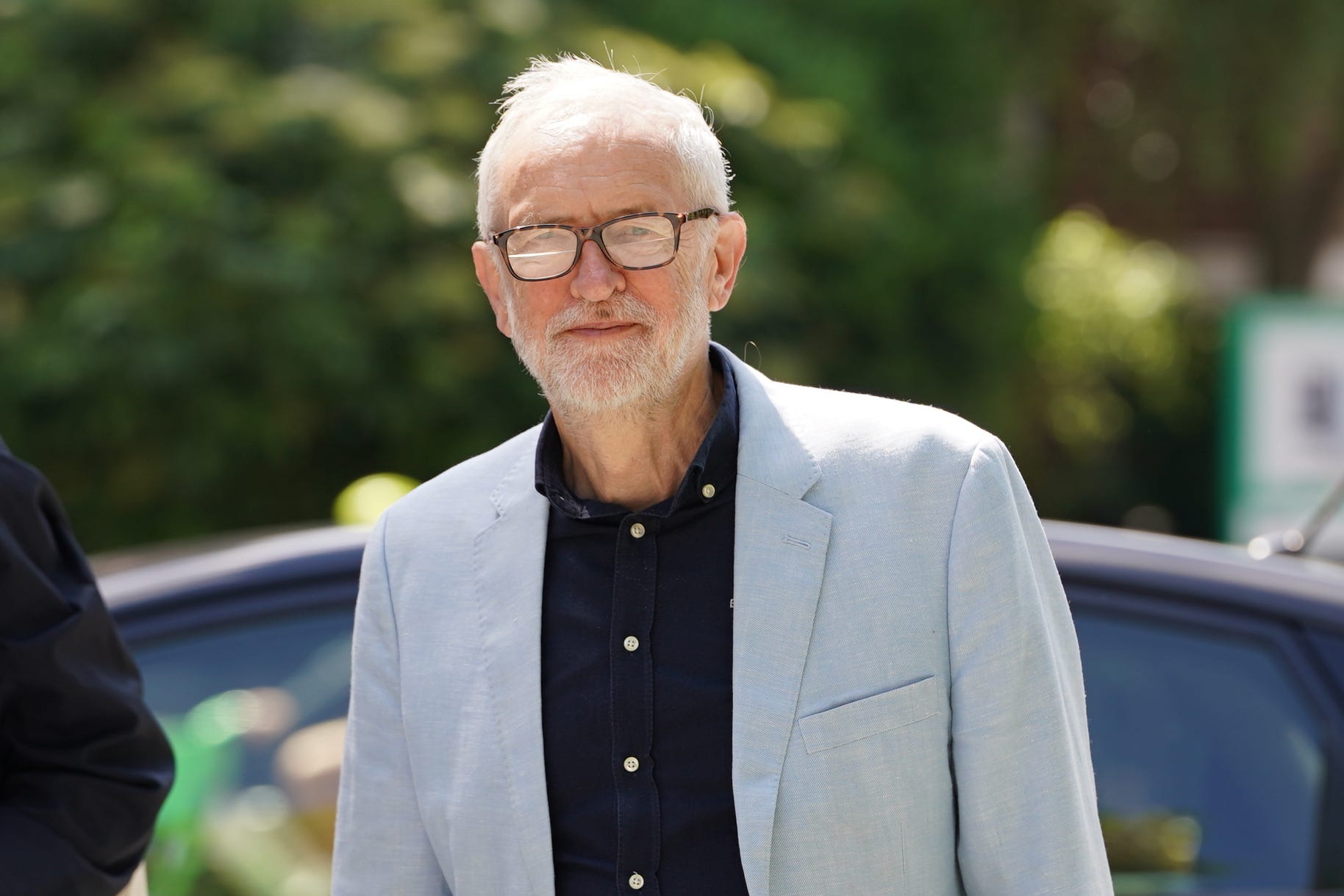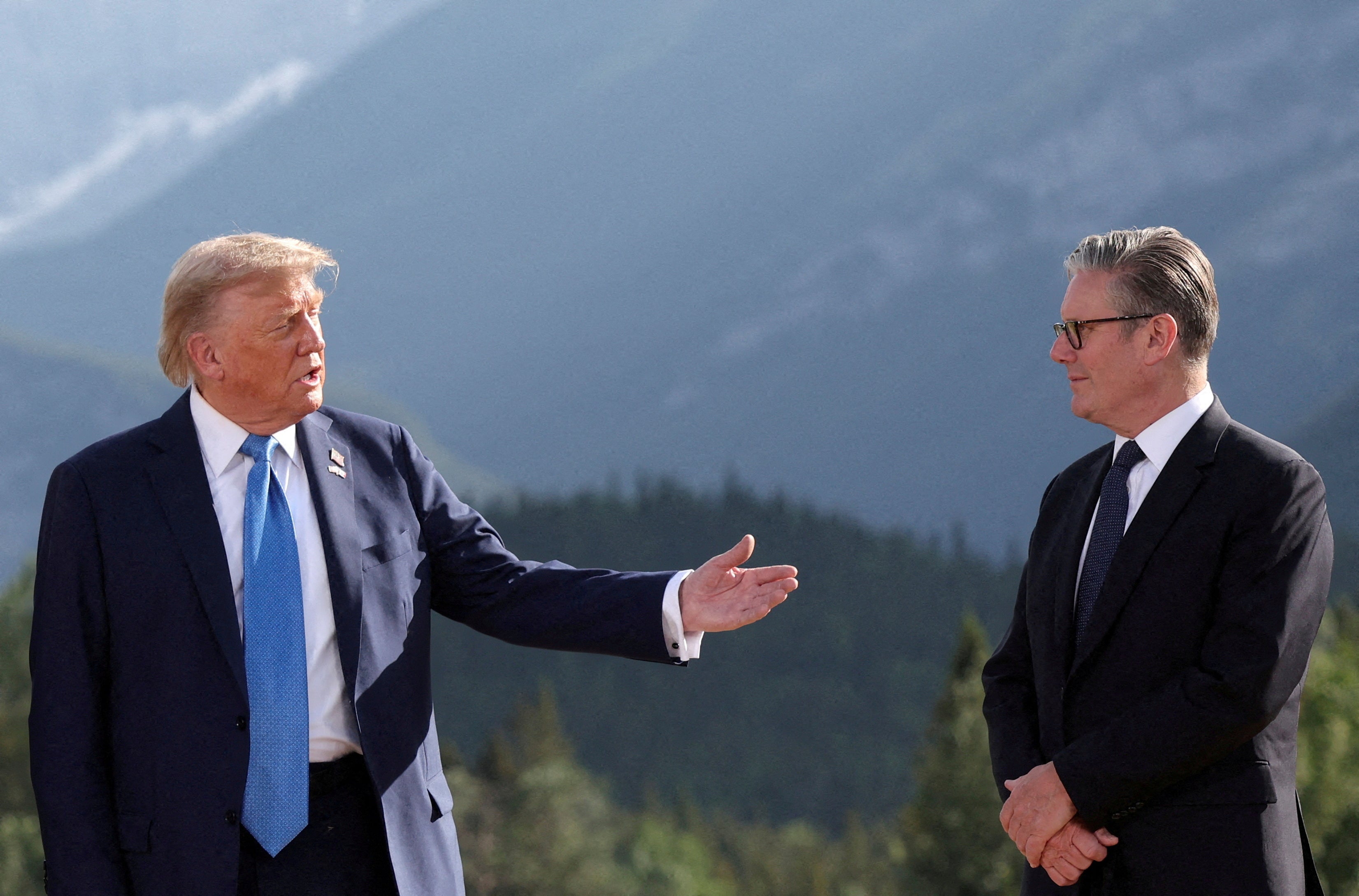Keir Starmer will go into his emergency cabinet meeting this afternoon under immense political pressure to change government policy and recognise a Palestinian state.
The discussion in the cabinet meeting will be part of a wider plan for peace which the prime minister will lay out to senior ministers. Sir Keir will be outlining details – not yet public – of a Europe-led peace plan for the Middle East which he has put together with President Emmanuel Macron of France and German chancellor Friedrich Merz –his so-called E3 partners.
But, in the end, the question which will be troubling Sir Keir will not be whether he wants to recognise Palestine as a country, but determining when formal recognition will have maximum effect.
This is why today’s cabinet meeting will be about setting a pathway to recognition, rather than doing it immediately.

The problem is that recognising a state is a one-time move. Unlike a Brexit agreement or a trade deal, there is no going back to rework some of the details further down the line – with this, there is no room for error.
That means, for Sir Keir to do it, he has to be sure it will achieve the goals he wants. The issue will be whether solving a political problem is more important than using it to achieve peace.
Current policy
The current policy, shaped by the Oslo Accords, is to support a two-state solution and to recognise a Palestinian state as part of a negotiated peace process – without specifying when this would be.
Sir Keir has gone further and said in a strongly worded statement on Thursday that a Palestinian state is “an inalienable right” of the Palestinian people.
For some, this was taken as a strong hint that he is edging closer to actual formal recognition.

The reason it is important is that once a state is formally recognised, it gains diplomatic status and can in theory be recognised by international bodies – so the move would not be purely symbolic.
Added to that, the UK’s historic status as the former colonial power which effectively created the modern state of Israel through the Balfour Declaration gives recognising a Palestinian state added symbolic weight.
Political pressure
President Emmanuel Macron’s decision last week to announce that France would be the first G7 country to recognise Palestinian statehood has ramped up pressure on Sir Keir to follow suit.
Already his cabinet is split over the issue, with figures like justice secretary Shabana Mahmood and deputy prime minister Angela Rayner pushing for recognition, while others like chancellor Rachel Reeves closely linked to Labour Friends of Israel (LFI) are more sceptical of an early move.
Recognition is backed by a clear majority in the Labour Party though, and Jeremy Corbyn’s new party on the left – which has made Israel-Palestine its primary policy area – adds even more pressure.

With more than 250 MPs from nine different parties signing a letter backing the proposition there is also clearly an appetite for it in Westminster.
But weighing on the other side is Labour Friends of Israel (LFI), which is a group made more powerful by the need within Labour to repair the damage of the antisemitism which was allowed to flourish under Corbyn’s leadership. It also has the support of a number of senior cabinet members.
LFI backs a two-state solution and eventual recognition of a Palestinian state but warns that if the UK goes for recognition early, it will waste an opportunity to maximise the effect.
All about Trump
Over the weekend minister James Murray pointed out that 140 countries have recognised a Palestinian state, but it has had no effect on the peace process.
There is a sense that it will destroy what is left of the UK’s dwindling influence with Israel, although given Benjamin Netanyahu’s attitude to international criticism that ship may have already sailed.
The problem was that US secretary of state Marco Rubio was very critical of France’s statement last week, and there was speculation that Starmer did not want to broach the recognition question until he had his bilateral with Donald Trump in Scotland out of the way first.

However, that meeting produced a surprise with the US president striking a very different line to his State Department. Speaking of Palestinian statehood, Trump said: “I’m not going to take a position, I don’t mind him [Starmer] taking a position.”
But the UK government now seems to understand that the only way to get Israel back in line and for the peace process to restart is for Trump’s administration to force everyone’s hand.
There is a danger that if he goes ahead with recognition of a Palestinian state, he may lose that last bit of influence he has on the White House.
But in the end Sir Keir is a prime minister respected abroad but losing control at home. He may decide that the political problems recognition solves domestically are worth doing it even if it has little or no impact on the peace process.







